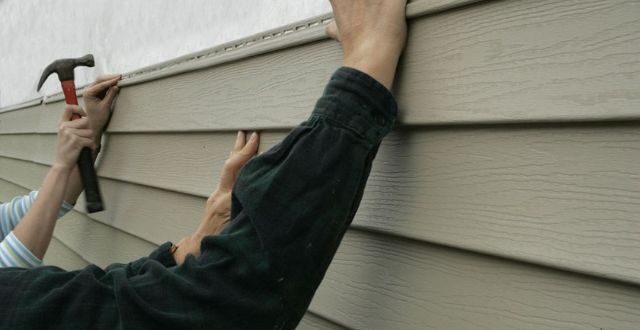When it comes to enhancing your home’s energy efficiency, siding replacement is a significant and worthwhile investment. The right siding material not only revitalizes the exterior of your home but also plays a crucial role in insulation and energy conservation. In this post, we’ll compare James Hardie siding, vinyl siding, and aluminum siding to help you make an informed decision.
James Hardie Siding: Durability Meets Efficiency James Hardie siding, often referred to as Hardie Board, is a fiber cement product known for its durability, weather resistance, and energy efficiency. It’s composed of cement, sand, and cellulose fibers, which together provide excellent insulation. This type of siding is ideal for various climates as it does not contract or expand with temperature changes, ensuring a tight seal against the home. Additionally, its composition makes it resistant to fire, pests, and rot, contributing to its longevity and maintaining its insulative properties over time.
Vinyl Siding: Affordable and Energy-Conscious Vinyl siding is a popular choice for homeowners looking for an affordable yet effective energy-efficient solution. It’s lightweight, easy to install, and comes in a wide range of colors and styles. When installed with insulated backing, vinyl siding provides a good insulation layer, helping to reduce heating and cooling costs. However, it’s important to note that vinyl can be prone to warping under extreme temperatures and may not be as durable as other materials over the long term.
Aluminum Siding: Low Maintenance and Reflective Qualities Aluminum siding is another energy-efficient option, known for its reflective properties and low maintenance. It reflects heat rather than absorbing it, which can be particularly beneficial in hot climates. Aluminum is also resistant to rust and corrosion, making it a durable choice. However, it’s worth noting that aluminum siding can dent more easily than other materials and may not offer as much insulation as fiber cement or insulated vinyl.
Conclusion
Choosing the right siding material for energy efficiency depends on your specific needs, climate, and budget. James Hardie siding offers superior durability and insulation, vinyl siding provides an affordable and versatile option with good energy-saving qualities, and aluminum siding excels in low maintenance and heat reflection. Consider these factors carefully to select the best siding option for your home’s energy efficiency and aesthetic appeal.
 khamush.com Lifestyle | Motivation | Poems
khamush.com Lifestyle | Motivation | Poems



